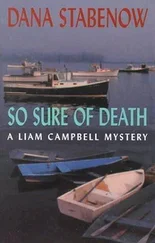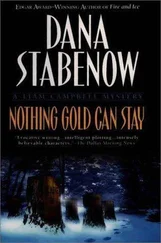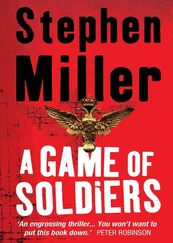Everyone who had them raised binoculars.
The Pheodora’s rust-streaked hull was plowing along at full throttle, as evidenced by the wake boiling up from the stern, but the Russian processor’s single-screw diesel was no match for the Sojourner Truth’s two, and they were closing fast. The helo, an orange flea to the Pheodora’s large bulk, was hovering on the starboard side of their bridge fifty feet off the water.
“Tell the helo,” the captain said.
Ops reached for the mike on the radio with the secure operations channel. “Coast Guard helo six five two seven,” Ops said, “this is the cutter Sojourner Truth. We have the target in sight, I say again, we have the Pheodora in sight.”
“Two seven, Sojourner Truth, roger that. We have hailed them and requested that they heave to. They have not responded.”
“Roger that,” Ops said, and looked at the captain.
District, as fed up as the captain at the repeated incursions, had already given Truth the go-ahead. Captain Lowe nodded. Ops nodded back and said into the microphone, “Russian fishing vessel Pheodora, this is the United States Coast Guard cutter Sojourner Truth. You have intruded into American territorial waters and are in violation of the Maritime Boundary Line. Reduce speed and prepare to be boarded.”
They waited. There was no noticeable reduction in the Pheodora’s speed. The captain’s mouth thinned. Sara saw it and rejoiced inwardly. Ops was grinning openly, and the bridge exuded an air of taut expectation. Partly it was a desire to do good to wipe out the Dutch Harbor debacle, and partly it was delight at the unexpected gift handed to them by this patrol that none of them had wanted to go on.
It was also the John Wayne reflex, that intrinsically American instinct to chase after the bad guy, the chance to wear the white hat, the unmistakable thrill of the cops-and-robbers chase that came so seldom into the daily routine of their patrols. Sara bit the inside of her cheek to keep from grinning back at Ops.
Ops keyed the mike to repeat the message and at the same moment the secure channel erupted into life again. “Sojourner Truth, Sojourner Truth, this is Coast Guard Hercules aircraft one seven five two, come in.”
Ops raised an eyebrow at Sara and said into the mike, “Go ahead, five two.”
The Here’s aviator’s voice was terse. “Truth, we’ve got another incursion about five miles south of your location.”
The captain swung around in his chair and stared at Ops. “Here five two, how far inside the line?”
“Sojourner Truth, five two, this one’s a little over two miles inside.”
“Son of a bitch,” the captain said, frightening everyone within earshot. Captain David Josephus Lowe, officer, family man, and deacon of the Kodiak First Baptist Church, never, ever swore.
Sara, however, sympathized, and was thinking a lot worse than the captain was saying out loud. The Coast Guard had run into this before in the Bering, one or more Russian vessels making an incursion over the line at the same time, so that the one vessel being boarded occupied the attention of the lone cutter on patrol, while the other vessel pulled in their gear more or less at their leisure and moved back to their side of the Line. Bait and switch.
Ops said into the mike, “Here five two, this is the Sojourner Truth, have you identified the vessel, I say again, what is the vessel?”
“Sojourner Truth, Here five two, their IRCS number is about six inches high and on the front of the flying bridge.”
Which meant that the foreign ship’s four-letter international identification number had been deliberately painted too small for the Here’s crew to read from two hundred feet up going one hundred seventy knots, which meant the cutter couldn’t input it into their onboard database.
“Five bucks says it’s the Agafia,” Seaman Razo said.
Chief Edelen snorted. “No bet.”
The Pheodora and the Agafia were both leased by the same Russian fish processor. In the litter of three-hundred-foot vessels maintaining a year-round presence in the Bering Sea next to the Maritime Boundary Line each year, the two could always be found near each other, and all too often a little too close to the line for comfort. This put them both in the HIV or High Interest Vessel category.
The captain said nothing. Sara wanted to scream with impatience. Instead she said to Ops, “Ask the Here about fuel.”
“Coast Guard Hercules aircraft one seven five two, Sojourner Truth, how much fuel do you have?”
There was a brief pause. “Sojourner Truth, Here five two, we’ve got maybe four hours before the point of no return.”
“Raise Kodiak and tell them to dispatch another Here,” the captain said. “Then get the helo back here to refuel. Tell the Here on the scene to maintain contact until they can hand off hot pursuit to our helo.”
Kodiak came on the air and confirmed the dispatch of the second Here with so little questioning that Sara knew they’d been monitoring the channel from the beginning of the incident and had been standing by for just this request.
Maintaining hot pursuit was critical in making a legal case in a federal court against a substantial piece of property owned by a foreign corporation. The Russians’ lawyers were usually American and the best that money could buy, and the first thing any decent attorney said in this kind of case was that the pursued vessel hadn’t heard the order to give way.
As if she had spoken out loud, Ops keyed the mike and said, “Russian fishing vessel Pheodora, Russian fishing vessel Pheodora, this is the United States Coast Guard cutter Sojourner Truth. You are trespassing in American territorial waters, I say again, you are trespassing in American territorial waters. Reduce speed and stand by to be boarded.”
“Any answer?” the captain said, formally and unnecessarily.
“No answer, Captain,” Ops replied, equally formally.
There was a long moment of silence. “Break out the.50 caliber.”
“Sir?” Sara said.
The captain chose to overlook her involuntary exclamation. “Muster the gun crew and mount it forward to starboard.”
Sara pulled herself together. “Aye aye, Captain.”
“I want two boarding teams ready to go when we catch up to her.” He paused, and added deliberately, maybe even raising his voice a little, “Each boarding team is to be issued shotguns.”
Yeah, Sara thought, not without respect, the old man was really pissed. It gladdened her heart, even though she didn’t believe anyone should ever be shot over fish. “Aye aye, Captain,” she repeated.
“XO?” the captain said.
“Sir?”
“I want you to go with one of the boarding teams.”
There was a brief, startled silence. “I want you to report to me personally every step of the way,” the captain said. “Go codes one, two, three. Understood?”
“Understood, Captain,” Sara said. She reached for the IMC and her voice boomed out over speakers all over the ship. Through the aft windows she could see men and women boiling out of various hatches and swarming around the two rigid-hulled inflatables lashed to cradles on either side of the ship.
Like any capable executive officer Sara knew her crew, from EO Nathaniel McDonald, who so far as she knew never left the engine room except to eat, sleep, or depart the ship, to FS3 Sandra Chernikoff, a mess cook not a year out of boot camp and an Alaskan like herself and Eugene Razo. She knew which of three categories each member of the crew fit in, the keepers, the time-markers, and the no-hopers. She knew who was on watch and who wasn’t. From memory she reeled off a list of twenty names, beginning with Ensign Ryan, their legal enforcement officer and boarding officer, and ending with PO James Marion, a fireman, damage controlman, and boat crew member. Everyone on board had at least two jobs and probably three. She had about twelve the last time she looked, but then she was a keeper herself.
Читать дальше












